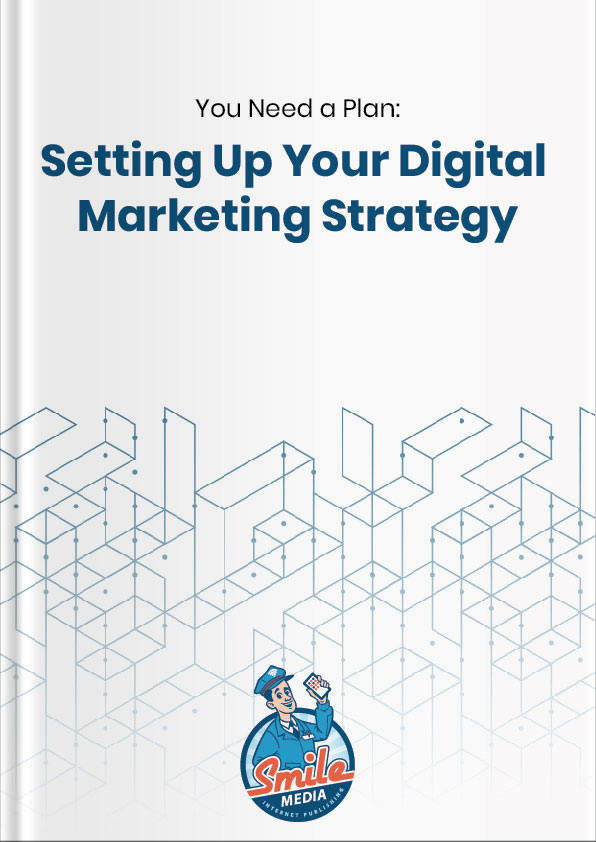The fact is – digital marketing is hard. Marketing today is much different than it used to be, and much more complex to boot. In the age of short attention spans, overcrowded emails, and a sea of content everywhere you look, it’s tough to get anyone’s attention. Whether you’re a start-up company, or you’ve been in the market for some time, there are a variety of reasons your marketing efforts aren’t bringing you the results were hoping for.
1. You don’t have clear goals.
If you’re trying a little of this and a little of that, and hoping for the best, without knowing why, you may be setting yourself up for failure. If you don’t know specifically what you’re trying to achieve with the marketing campaigns you’re putting time and money into, then how would you even know if you achieved them? Maybe your marketing strategies are actually working, but you forgot to determine the specifics of your goals when you started. Time to back up a bit and establish clear goals, so it’s easy to know when you reach them.
2. You don’t have a plan.
It’s been said that, “If you fail to plan, you plan to fail.” As with any endeavor you hope to succeed at, it’s crucial to invest the time and resources into coming up with a solid plan before you begin. If you’re just winging it, then you aren’t likely to get very significant results. If you don’t take the time to put together a strategy with measurable goals and deadlines, you could end up spinning your wheels endlessly. Take your clearly defined goals, and put together a plan for how you can achieve them, and when you want to achieve them by.
3. You aren’t measuring the right KPIs (or any).
Establishing specific Key performance indicators (KPIs) is crucial to helping you measure your achievements, and ultimately achieve your goals. When it comes to digital marketing, there are many different metrics that can be measured, making it hard to know which ones matter most based on your goals. For example, as an online B2B business, the number of unique website visitors that come to your site each month would be an important thing to measure. If you’ve developed a landing page to specifically promote one product or service, the conversion rates for this specific landing page would also be important to measure and track.
4. You aren’t using the right channels.
Do you know where your audience is online, and how they prefer to view content? If not, it’s possible that you aren’t reaching them in the right places. If your audience prefers videos to blogs, and you’re writing lengthy posts on a regular basis, you may not be getting their attention. Or, maybe your audience prefers Instagram to Facebook. If you’re spending all of your time on one social platform, you could be missing out on members of your target audience that prefer other platforms for getting their content. Get to know your target audience, and bring the information to them wherever they are.
5. Your branding is inconsistent across channels.
Customers like consistency. It makes them trust a brand, because they know what to expect. If the brand experience your audience has on your website is significantly different than their experience through email campaigns, social media, and other channels, they may get confused. Confusion often leads to frustration, which could result in potential customers deciding to go elsewhere with their business. Be sure that your brand is easily recognizable, and that your messaging is consistent no matter what channel you are marketing through.
6. You aren’t doing inbound marketing.
If you aren’t doing any inbound marketing, it’s time to jump on the bus. Consumers today don’t want advertising shoved in their faces. They want to decide when and where they learn about the products and services you have to offer. Blogging about industry relevant topics is a great example of inbound marketing in use. And, it has been said that content marketing – specifically blogging – is three times more effective than traditional marketing at generating leads.
7. You’re trying to get everything for free.
Free marketing tools are great. There are a ton of great free and inexpensive programs out there to help with different aspects of digital marketing. The problem is, much of the time, you ultimately get what you pay for. Are there free tools out there that are awesome, and are almost as good as the paid versions? Absolutely. But there are some things you’re better off just handing over the cash for. A professionally designed website, for example, is something that is extremely difficult to do for free. This brings us to our final point…
8. You think you can do it all by yourself.
Of course you can do anything you put your mind to. If you want to take on the necessary time, work and money it will cost you to do all of your marketing by yourself, then we applaud you. But don’t you have other things to do, like running your business? Unless you are a highly skilled graphic designer, web developer, professional content writer and branding strategist, you may want to hire someone else to make sure it’s done right.
Identifying the problem is the first step towards fixing it. Need help? Contact SMILE Multimedia today!








